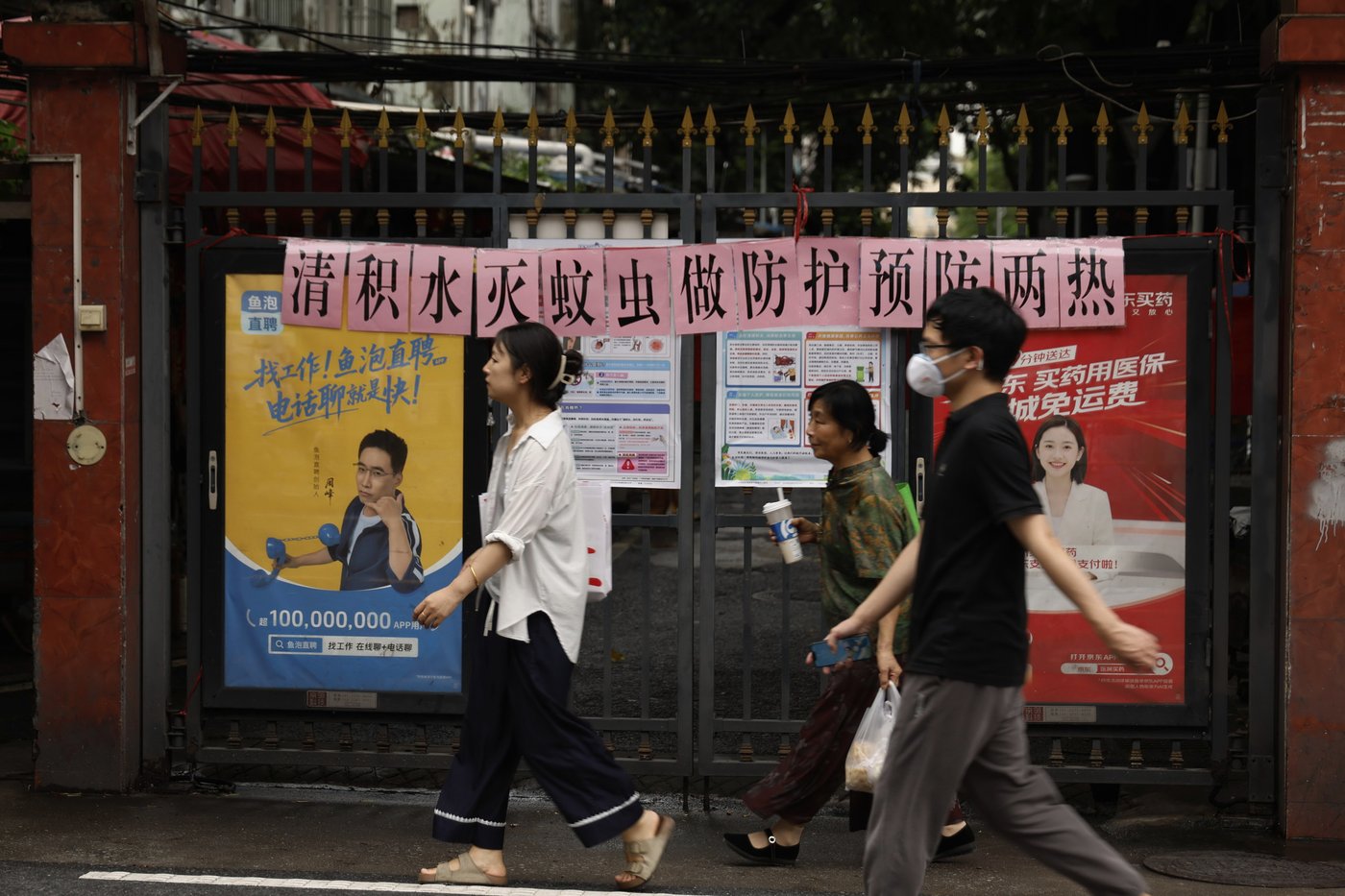
China fights mosquito-borne chikungunya virus with drones, fines and nets as thousands fall ill
TAIPEI, Taiwan (AP) — Chinese authorities are using nets, spraying insecticide and even deploying drones to fight the mosquito-borne chikungunya virus, which has infected thousands of people.
Authorities had reported more than 7,000 cases of the virus as of Wednesday, mostly in the southern Chinese manufacturing hub of Foshan, some 170 kilometers (105 miles) from Hong Kong. The number of new cases appears to be dropping slowly, according to authorities.
It appears to be the largest chikungunya outbreak ever documented in China, according to Cesar Lopez-Camacho of the University of Oxford. The virus is transmitted by infected mosquitoes and can cause fever and joint pain.
“What makes this event notable is that chikungunya has never been established in mainland China before,” Lopez-Camacho said in a statement. “This suggests that most of the population had no preexisting immunity, making it easier for the virus to spread quickly.”
Chinese state television has shown workers spraying insecticide around city streets, residential areas, construction sites and other areas where people may come into contact with mosquitoes. Workers sprayed some places before entering office buildings.
Unusually heavy rains and high temperatures have worsened the crisis in China, and authorities are using drones to try to find standing water, where mosquitoes lay eggs.
Authorities also have threatened to fine people who don’t empty water from outdoor receptacles. Residents can be subject to fines of up to 10,000 yuan ($1,400) and have their electricity cut off.
Because of the virus, the U.S. has issued a travel advisory suggesting that Americans take extra precautions when visiting China’s Guangdong province, where Foshan is located, as well as Bolivia and some island nations in the Indian Ocean.
Since the 2003 SARS outbreak, China has used strict measures to fight the spread of viruses, including hard-line tactics during the COVID-19 pandemic. This time, patients are being forced to stay in hospital in Foshan for at least one week and authorities briefly enforced a two-week home quarantine, which was dropped because the disease cannot be transmitted between people.
Reports also have emerged of attempts to stop the spread of chikungunya with fish that eat mosquito larvae and even larger mosquitoes to eat the insects carrying the virus.
Officials have held meetings and adopted protocols at the national level in a sign of China’s determination to eliminate the outbreak and avoid public and international criticism.


Join the Conversation!
Want to share your thoughts, add context, or connect with others in your community? Create a free account to comment on stories, ask questions, and join meaningful discussions on our new site.

















Leave a Reply
You must be logged in to post a comment.